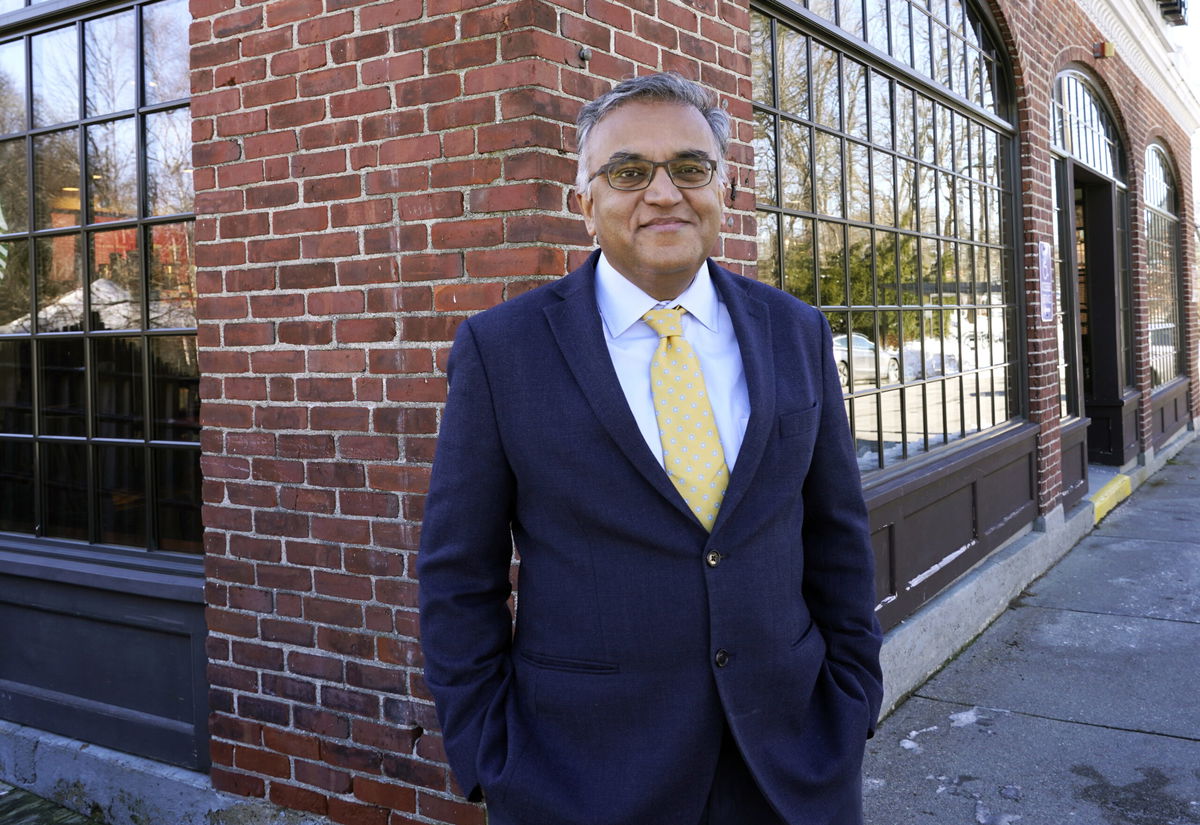White House Covid-19 coordinator Jha on Capitol Hill to push for more funding

White House Covid-19 response coordinator Dr. Ashish Jha
By Betsy Klein, CNN
White House Covid-19 response coordinator Dr. Ashish Jha is on Capitol Hill Wednesday, a White House official told CNN, meeting with members of the House and Senate from both parties as the administration renews its push for Covid-19 supplemental response funding and lays out specific consequences of congressional inaction.
The meetings, which the official said “will continue throughout the week,” mark Jha’s first major push on Capitol Hill since he assumed his role earlier this month while Congress was on recess for the Easter break.
The Biden administration requested $22.5 billion in supplemental Covid-19 relief funding last month in the massive government funding package, but it was stripped from the bill. It included money for testing, treatments, therapeutics and preventing future outbreaks. Negotiators were able to reach an agreement on a scaled-back $10 billion package, but Congress left Washington without passing that bipartisan bill amid disagreement over the Title 42 immigration policy, a pandemic-era rule that allows migrants at the US-Mexico border to be returned immediately to their home countries due to a public health emergency.
A fact sheet from the White House obtained by CNN on Wednesday emphasizes the “urgent need” for Congress to act amid the coronavirus’ ongoing unpredictability, laying out specific consequences for vaccines, treatments and testing for Americans, as well as fewer shots in arms abroad.
“Covid-19 isn’t waiting on Congress to negotiate. Other countries will not wait. Time is of the essence. Congress must act urgently to help save more American lives and ensure we remain prepared,” the fact sheet warned.
The US would not be able to secure enough second booster shots for every American if that is needed this fall, the fact sheet said, pending authorization from the US Food and Drug Administration and a recommendation from the US Centers for Disease Control and Prevention. The administration, the fact sheet noted, would also not be able to secure new vaccines that “could offer broader and longer-lasting protection than our existing vaccines” to safeguard against potential variants.
“The United States should be securing these vaccines today, but without funding, the administration cannot purchase doses for the American people or even ensure that America is in line for them. This could mean people in other countries have access to the best lifesaving vaccines before Americans,” the White House said.
The ability to beef up the supply of treatments could also be affected. The administration, the White House said, “cannot restock the nation’s supply of lifesaving treatments,” pointing to a recent cut in the number of monoclonal antibody treatments sent to states. And, the White House added, a lack of funding would prevent the US from investing in promising, next-generation treatments. The US is also “substantially” scaling back its plans to purchase additional supply of Evusheld, a drug to prevent Covid-19 for immunocompromised individuals.
On testing, the White House warned that the US “cannot sustain domestic testing manufacturing capacity and will be unprepared for another surge in testing demand,” similar to the shortages in December amid the spread of the Omicron variant.
“Federal investments are a crucial way to preserve the domestic testing manufacturing capacity we have built over the last 15 months. Without these investments, it will take manufacturers months to ramp back up to rebuild capacity, so failure to invest now will leave us with insufficient testing capacity and supply if we see another surge in cases and demand for testing increases once again,” the White House said.
And a lack of funding would also affect US efforts abroad.
“Without additional funding for our global response, we will not have resources to help get more shots in arms in countries in need — which is one of the best ways we can prevent future variants. We will also lack funding to provide oxygen and other lifesaving supplies, and our global genomic sequencing capabilities will fall off,” the fact sheet said.
The-CNN-Wire
™ & © 2022 Cable News Network, Inc., a WarnerMedia Company. All rights reserved.
